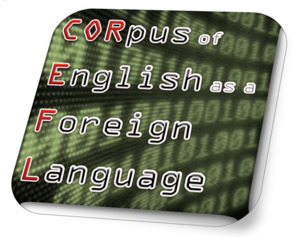COREFL (version 1) team
Direction, corpus design and compilation:
Cristóbal Lozano (Universidad de Granada)
Ana Díaz-Negrillo (Universidad de Granada)
Marcus Callies (Universität Bremen)
Linguistic team:
Cristóbal Lozano (Universidad de Granada)
Ana Díaz-Negrillo (Universidad de Granada)
Marcus Callies (Universität Bremen)
Nobuo Ignacio López-Sako (Universidad de Granada)
Mario Barcala (NLP Go Technologies)
Research assistants:
Teresa Quesada (Universidad de Granada)
Fernando Martín-Villena (Universidad de Granada)
Elena García Guerrero (Universidad de Granada)
Mª Carmen Espínola Rosillo (Universidad de Granada)
Celia Torrejón Tobío (Universidad de Granada)
Aphrodite Amanatidou (Universidad de Granada & University of Ioannina)
Bethany Gardner (Rochester University - IES Abroad Granada)
Spoken data transcribers:
Teresa Quesada (Universidad de Granada)
Aphrodite Amanatidou (Universidad de Granada & University of Ioannina)
Celia Torrejón Tobío (Universidad de Granada)
Software development:
COREFL web interface (version 1): Mario Barcala (NLPgo Technologies, S.L.).
Participants:
COREFL is the result of thousands of anonymous volunteers who generously participated online from different countries. A small group of them participated in situ at the Universidad de Granada during the oral recordings. Participants read an informed consent form first and participation was entirely voluntary. Ethics approval was granted by the Human Research Ethics Committee at the Universidad de Granada. We thank all participants for their help!
